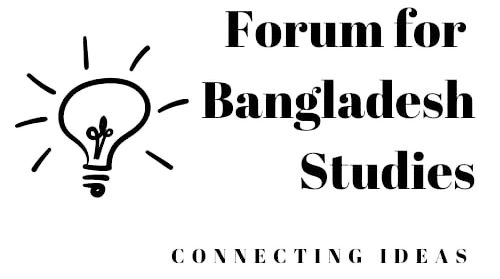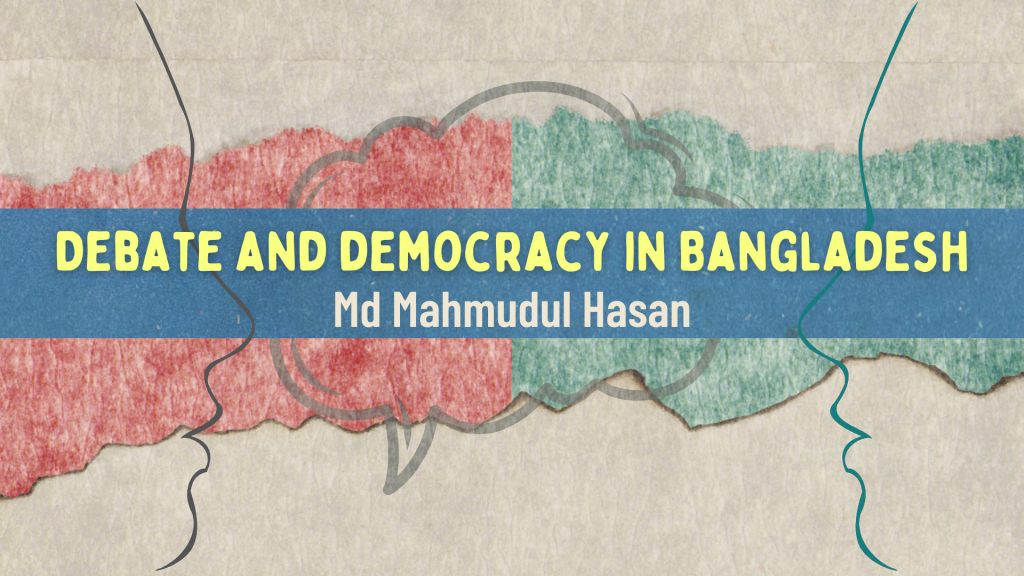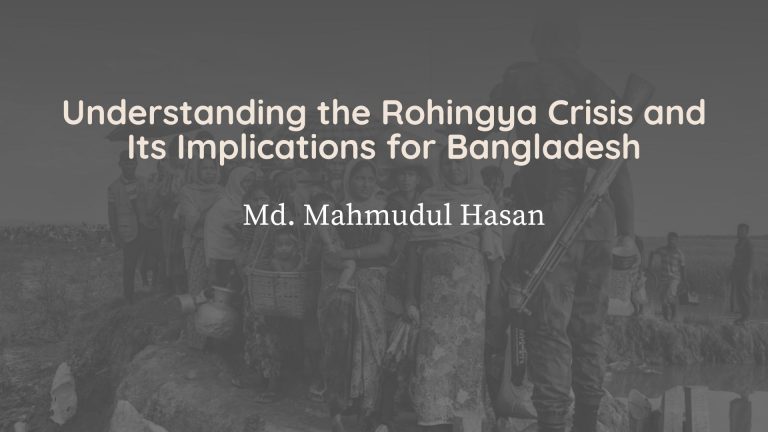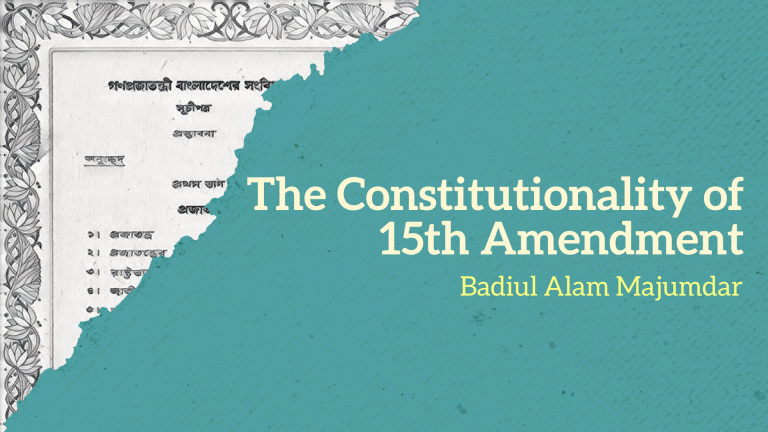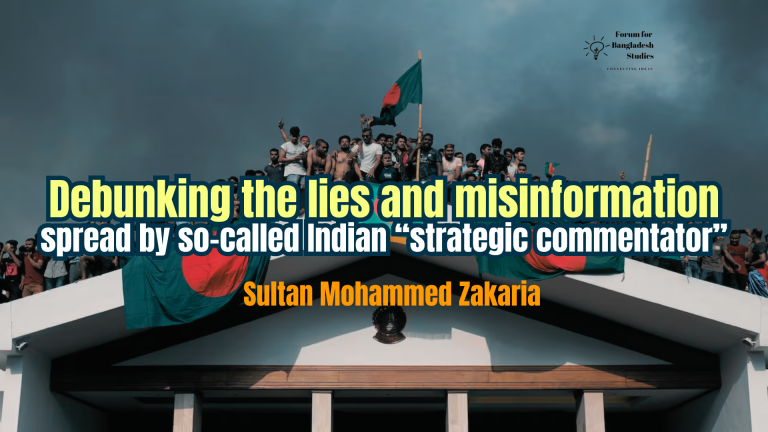On July 27, 2022, two students from Dhaka’s Brac University – Sajid Asbat Khandaker and Sourodip Paul – made Bangladesh the first Asian country to win the World Universities Debating Championships (WUDC). Since the Serbian capital city hosted this year’s debating competition, it was named Belgrade WUDC 2022. At the final phase of the tournament, there were four competing teams – two teams on each side – and each team comprised two debaters.
After all the debaters spoke, the judges ranked the teams based on their performances, and the team comprising Sajid and Sourodip topped all others. On their way to this glory in the eight-day competition, they outranked the debating teams from Princeton, the National University of Singapore, Oxford, Harvard and other prestigious universities. It is undoubtedly a landmark achievement for Bangladesh in university-level debating. Needless to say, Sajid and Sourodip made their speeches in English, which is not their first language.
Unfortunately, as Prof Ali Riaz of Illinois State University pointed out in an essay published in Prothom Alo on July 30, 2022, this great cerebral feat has not received adequate media attention in Bangladesh. This was a good occasion of national pride and celebration for us as Bangladeshis. But surprisingly, we were not sufficiently thrilled by this achievement.
Perhaps one reason for this lukewarm reception is that the very concept of debate is antithetical to the sociopolitical order that has developed in Bangladesh since the early 2010s. Debate is a form of dialogue that involves claims and counterclaims, and rebuttals and counter-rebuttals. Freedom of speech and equal opportunity are indispensable elements in any debating exercise. In the Belgrade WUDC, each of the four teams and each of the eight team members had equal amounts of time and opportunity to make and defend their arguments.
This notion of equality seems to have disappeared from, or has become less relevant to, the current political culture of Bangladesh, where dull top-down monologues rather than robust dialogues with the people have become the norm. The country seems to have embraced or tolerated restrictions on free speech. Legislations like the Digital Security Act (DSA) and other pre-emptive and punitive measures against dissent have placed the citizens on the slippery slope of fear and self-censorship. Debate in the public sphere, which is part and parcel of the democratic process of a country, is largely damped or downplayed (if not completely silenced). One may say that, metaphorically, Sajid’s and Sourodip’s debating verve and vigour overseas represented the latent, suppressed debating potential of the entire population of Bangladesh. What could not be exercised inside the country found an intensely passionate expression in Belgrade – hence, the success.
In Bangladesh, the establishment narrative dominates the political system. Let me give an example to illustrate this point.
I live outside my country, but the pull of patriotism brings me back home again and again. Therefore, Dhaka’s Hazrat Shahjalal International Airport is a common air travel destination for me. The airport is my first and last encounter with my motherland during every visit.
Even when I was teaching at Dhaka University, I was a frequent flyer. I went overseas for research purposes and conference presentations. One day, my teacher and colleague Prof Khondakar Ashraf Hossain (1950-2013) jokingly said to me, “You should have your residence near the airport!” What I am trying to say is that the Dhaka airport has remained a very important place for me and, in what follows, I would like to describe what I have often seen on the roadside near it.
As one rides from the airport to Tongi, and then to Mohakhali, one sees that the roadsides are full of banners, posters and billboards carrying photos of ruling party leaders and their political propaganda. During my trip to Bangladesh in early 2020, I looked for a single poster or banner of the opposition parties on the roadsides near the airport. There was none. This year, I saw only a few posters carrying images and messages (complaints) of non-ruling parties among hundreds of those of the party in power. The visual or pictorial fodder around the country is not very different.
Now, what do the ruling party people want to achieve through such ‘exhibitionist’ (visual) dominance on the roadsides? If the target audience is the people of the country, they don’t achieve much. This is because most people know all too well which political party is popular in the country and how much freedom of expression they enjoy as citizens.
It is worth mentioning here that the Dhaka airport is also the first place that helps foreigners – who work in Bangladesh or come to visit the country – form their opinions about the country, its government and citizens. In other words, the airport and its adjacent areas give them the first impression about Bangladesh, and the monopolistic poster exhibition on the roadside near the airport probably amuses or bemuses them. This visual monopoly will tell them about the presence or absence of democracy, depending on their level of sagacity.
In my opinion, such roadside poster dominance does not give a good representation of Bangladesh as a 21st century nation. It only heightens the egotism and hubris of the affiliates of the ruling party and erodes public trust in the government. It does little in terms of increasing the prestige of the country or the government. What’s more, it reveals the absence of public debate, making obvious the suppression of dissenting voices and opinions.
The authorities would have nothing to lose if they ensured a fair and inclusive climate and facilitated diversity of viewpoints. If the ideas and strategies of the ruling party are really better for the country, juxtaposing them against those of the opposition will only strengthen and further validate them. Conversely, reluctance to allow the opposition to speak freely will surely signal the inherent weaknesses of the government’s policies and strategies.
Sajid’s and Sourodip’s debating success is understandably an outcome of a vibrant debating culture that Brac University has nurtured on its campus. The question now is whether this debating spirit will spill over into the wider society, and whether the victory will inspire full and fair debates of ideas and issues in the public domain beyond the campus of Brac University. Will the citizens of Bangladesh have a democratic space to freely use the rhetorical approach of what Prof Ali Riaz called “ethos, pathos and logos” in popular (political) debate? Is there a glimmer of light at the end of the tunnel?
Lastly, we hope that Sajid’s and Sourodip’s stunning rhetorical feat will spark the spirit of debate in society. It will cultivate a culture of inclusivity which can override parochial concerns and lead us to the grove of free and fair discussions. In any event, we as Bangladeshis will remain tenacious in our hope and unfettered in our optimism, despite the present reality.
